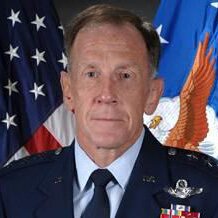News Updates
280 Days of Risk to National Security
• September 10th, 2010
Tomorrow Marks 280 Days without Inspections of Russian Strategic Nuclear Weapons
Washington, D.C., 10 Sept 2010 – Tomorrow marks 280 days that our highly trained verification inspectors have not been able to inspect Russian strategic nuclear weapons.
(more…)
It’s time for the Senate to vote on New START
• September 10th, 2010
It’s time for the Senate to vote on New START
Washington Post
George P. Shultz, Madeleine K. Albright, Gary Hart and Chuck Hagel
The Senate should promptly vote to approve the New Strategic Arms Reductions Treaty (New START) with Russia for one reason: It increases U.S. national security. This is precisely why Defense Secretary Robert Gates declared at the outset of Senate consideration of the treaty that it has “the unanimous support of America’s military leadership.”
read more at: The Washington Post
Senate approval of New START would send a strong message to the world that the United States can overcome partisan differences and take concrete, practical action to reduce the nuclear threat and enhance our nation’s security.
Ambassador supporting New START Treaty
• September 10th, 2010
Knoxnews
Friday, September 10, 2010
By Frank Munger
Ambassador Linton Brooks, who was chief U.S. negotiator for the START I arms control agreement signed by the United States and the Soviet Union in 1991, is a big supporter of the New START Treaty with Russia that would further reduce the world’s largest nuclear arsenals, and he’s urging ratification by the U.S. Senate.
(more…)
Consensus is clear: Ratify New START now
• September 10th, 2010
USA Today
10 Sept 2010
By Dirk Jameson
As the former commander of the U.S. intercontinental ballistic missile (ICBM) force, I was personally responsible for making sure that the hundreds of land-based missiles, each carrying as many as 10 warheads, stayed on alert and ready to launch against targets halfway around the world at a moment’s notice, if deterrence failed.
Yes: Treaty protects against nuclear proliferation and nuclear terrorism.
• September 7th, 2010
Atlanta Journal Constitution
By Paul D. Eaton
9:40 a.m. Tuesday, September 7, 2010
Through repeated tours at Fort Benning and eventually serving as its commanding general, I got to know Georgia and Georgians pretty well.
Learning From Experience on Arms Control
• September 7th, 2010
The Wall Street Journal, September 7, 2010
Russia and the United States have made steady progress on verification since the 1980s.
By GEORGE P. SHULTZ
The New Start treaty provides an instructive example of how, when everyone works at it, an important element of arms control treaties can be improved by building on past treaties and their execution.
U.S. grasp of Russia nukes may weaken warns official
• September 3rd, 2010
U.S. grasp of Russia nukes may weaken warns official
Fri Sep 3, 2010 5:41pm EDT
By Susan Cornwell
WASHINGTON (Reuters) – American knowledge of Russia’s nuclear capabilities will dwindle if a new nuclear arms treaty with Moscow is not ratified, the chief U.S. negotiator argued as a Senate panel on Friday scheduled a vote on the document.
(more…)
Let national security, not politics, guide decision on START
• September 3rd, 2010
The Nashua Telegraph, Sunday, August 29, 2010
By JOHN CASTELLAW, DIRK JAMESON and JOHN ADAMS
As those whose career has been dedicated to our nation’s defense – including responsibility for all U.S. intercontinental ballistic missiles, overseeing Marine Aviation and the Marine Corps budget creation and execution, and as the U.S. deputy military representative to NATO – we take very seriously the idea that national security should be above political partisanship.
The Path to Deep Nuclear Reductions – Dennis M. Gormley
• September 1st, 2010
The transformation of the U.S. conventional capabilities has begun to have a substantial and important impact on counterforce strike missions particularly as they affect counterproliferation requirements. So too have improvements in ballistic missile defense programs, which are also critically central to U.S. counterproliferation objectives. These improved conventional capabilities come at a time when thinking about the prospects of eventually achieving a nuclear disarmed world has never been so promising. Yet, the path toward achieving that goal, or making substantial progress towards it, is fraught with pitfalls, including domestic political, foreign, and military ones. Two of the most important impediments to deep reductions in U.S. and Russian nuclear arsenals – no less a nuclear disarmed world – are perceived U.S. advantages in conventional counterforce strike capabilities working in combination with even imperfect but growing missile defense systems.
Thinking the Unthinkable: Fires in Russia Fan Nuclear Fears
• August 12th, 2010
Judy Pasternak
(Aug. 11) — The United States has spent hundreds of millions of dollars and years of effort to help Russia secure its nuclear stockpiles from what is euphemistically referred to as “diversion.” But the 600 wildfires raging across the Russian countryside spotlight another risk to the nuclear-industrial complex: natural disaster.




































